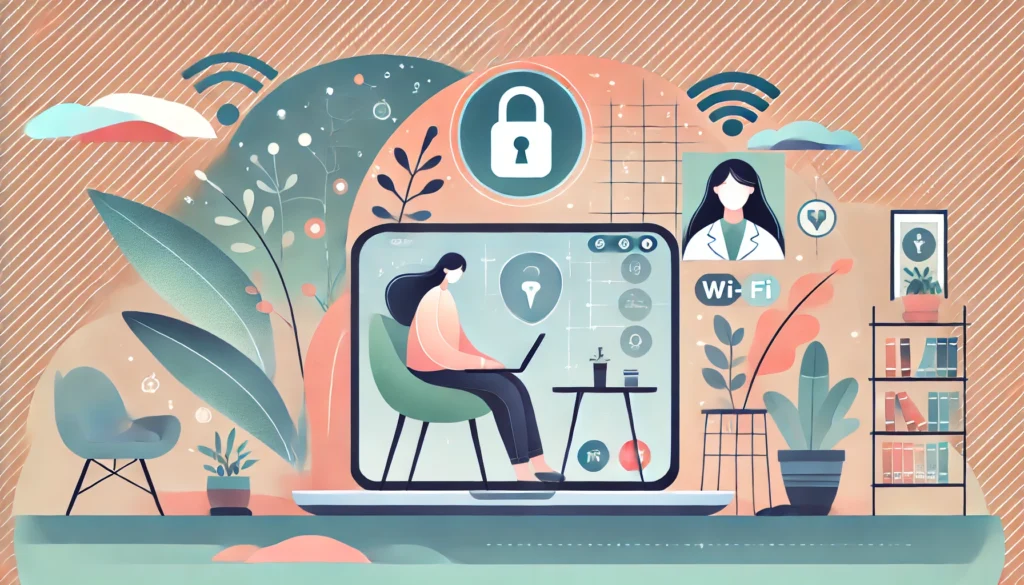The rise of online psychiatric services has transformed mental health care, offering convenience and accessibility that traditional methods cannot always provide. Many people now turn to virtual visits to manage their mental health, especially with the availability of a Leading online psychiatrist in California. These services allow you to access expert help from the comfort of your home, breaking down barriers like distance and transportation issues.
Long-term dependence on online psychiatric services brings both benefits and challenges. On the plus side, it ensures consistent access to mental health care, especially for those living in remote areas or with busy schedules. The convenience and flexibility can lead to better adherence to treatments and improved outcomes.
Still, it’s important to weigh the potential drawbacks. Over-reliance on online services might limit face-to-face interactions, which can be required for some forms of therapy. Additionally, technical issues and privacy concerns may arise. Balancing virtual care with occasional in-person visits might be the most effective approach for many patients.
Exploring the Spectrum of Online Psychiatric Services
Digital technology has dramatically changed mental health care, offering diverse services. From telepsychiatry’s evolution to assessing quality, understanding these areas is required.
Evolution of Telepsychiatry
Telepsychiatry began as a convenient solution for remote areas, leveraging early internet and video call technology. It quickly adapted to include various telehealth platforms and apps, broadening access to quality care. The transformation accelerated during the COVID-19 pandemic.
Modern telepsychiatry involves both synchronous telepsychiatry (real-time video calls) and asynchronous telepsychiatry (message-based interactions). These modalities cater to different needs, ensuring comprehensive mental health support. Improved infrastructure and higher internet speeds have made telepsychiatry more reliable and effective.
Telehealth Platforms and Modalities
Telehealth platforms offer a range of modalities, including video consultations, phone calls, and text-based therapy. Some platforms integrate AI tools to tailor treatment plans, while others focus on synchronous or asynchronous interactions. These virtual services allow you to choose methods that best suit your comfort and convenience.
Furthermore, telemedicine platforms enable easy scheduling, prescription management, and follow-up appointments. Telepsychology apps often incorporate educational resources, helping users better understand their conditions. This flexibility and integration improve the overall experience and accessibility of mental health care.
Assessing Quality and Effectiveness
Evaluating the quality of online psychiatric services is essential. Important factors include licensed professionals, user reviews, and privacy policies. Effective telepsychiatry must maintain high standards in these areas to ensure patient safety and confidentiality.
Measures of effectiveness also encompass outcome tracking and user satisfaction. Online platforms often use surveys and follow-up assessments to gauge success and areas for improvement. Reliable data collection helps refine services, making telepsychiatry a trustworthy option for ongoing mental health support.
Clinical and Ethical Considerations
In providing long-term online psychiatric services, there are several important clinical and ethical factors to consider. Ensuring the privacy and confidentiality of patient information, the effectiveness of patient-provider communication, and maintaining strong therapeutic relationships are of utmost importance.
Ensuring Privacy and Confidentiality
Privacy and confidentiality are pivotal in online psychiatric services. Your mental health information must be safeguarded during videoconferencing sessions. Online platforms must comply with HIPAA regulations to ensure your data’s security. Providers need to use encrypted communication tools to prevent unauthorized access.
Informed consent should be obtained to ensure you understand how your information will be used and protected. Additionally, it’s important to be aware of potential risks, such as data breaches. Strategies like using secure passwords and reliable, private internet connections can further protect your information.
Effective Patient-Provider Communication
Effective communication is essential in mental health care, especially online. Clear and consistent interactions help in building a strong therapeutic alliance. Your provider should ensure they use simple language and verify that you understand the treatment process.
Online communication may lack some non-verbal cues such as body language, which are important in traditional therapy settings. Providers should be trained in interpreting facial expressions and tone of voice over video calls. This helps achieve accurate assessments and maintain engagement.
Maintaining Therapeutic Relationships Online
Maintaining a therapeutic relationship online requires effort from both the provider and the patient. Trust and rapport must be built over videoconferencing sessions, which may present unique challenges. Providers should strive to create a safe and supportive online environment.
Frequent and consistent sessions can help strengthen this therapeutic relationship. It is also important for your provider to recognize and address any feelings of disconnection you might experience. Encouraging open communication and feedback can make the online therapeutic experience more effective and meaningful for you.
Conclusion
You have explored the pros and cons of long-term dependence on online psychiatric services.
Advantages include:
- Accessibility: Easier for those in remote areas.
- Flexibility: Convenient scheduling.
- Cost Efficiency: Often more affordable.
Challenges involve:
- Technical Issues: Connectivity problems.
- Privacy Concerns: Data security risks.
- Lack of Physical Interaction: Missing in-person elements.
Balancing these aspects is required for effective mental healthcare.








